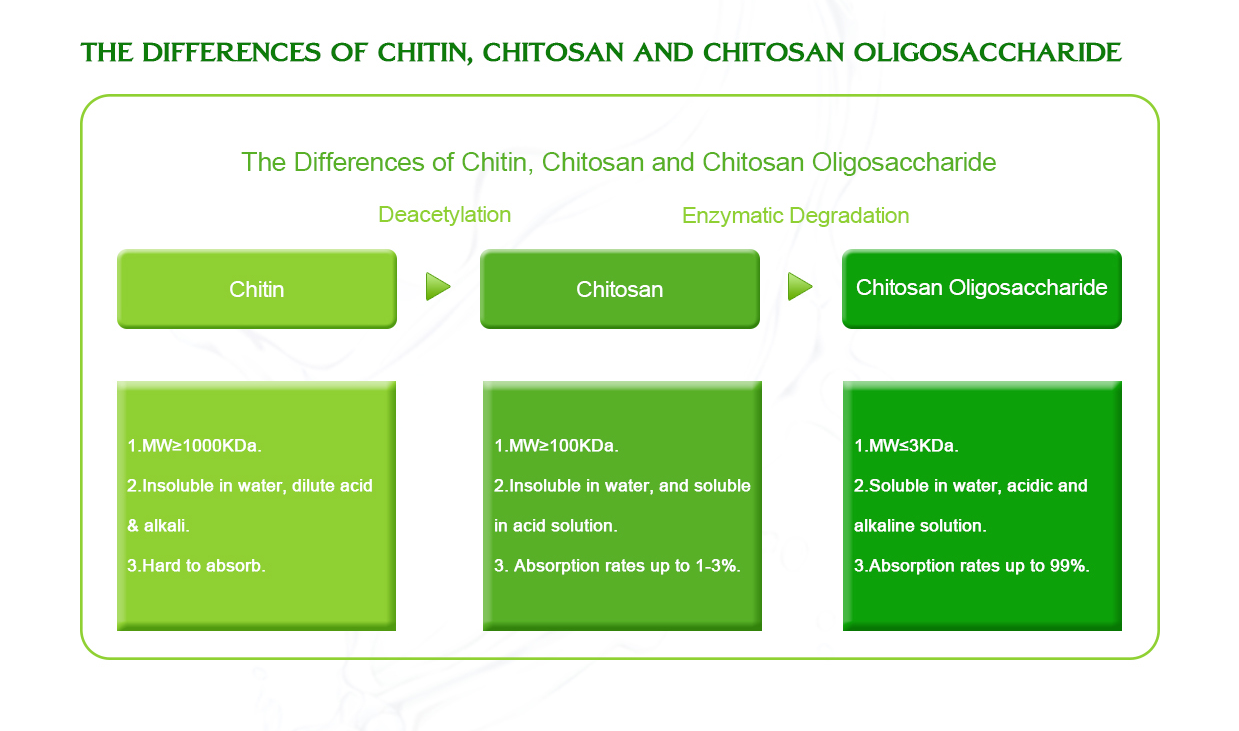Chitosan oligosaccharide is a derivative of chitosan, which is a biopolymer obtained from chitin, a natural polymer found in the shells of crustaceans like shrimp and crabs. Chitosan oligosaccharide is created by enzymatic or chemical hydrolysis of chitosan, resulting in shorter chains of chitosan molecules.

Chemical Structure:
Chitosan is composed of repeating units of glucosamine and N-acetylglucosamine linked together by β-1,4 glycosidic bonds. The structure of chitosan oligosaccharide retains this basic backbone, but with a smaller number of glucosamine and N-acetylglucosamine units.
Physical Properties:
The physical properties of chitosan oligosaccharide can vary depending on factors such as the degree of polymerization, the source of chitosan, and the method of hydrolysis. Here are some general physical properties:
- Solubility: Chitosan oligosaccharide is more soluble in water compared to chitosan. This increased solubility is due to the shorter chain length, which reduces intermolecular interactions. The solubility makes it easier to incorporate into various formulations.
- Molecular Weight: Chitosan oligosaccharide has a lower molecular weight compared to chitosan. The molecular weight can influence properties such as viscosity, biodegradability, and bioactivity.
- Biocompatibility: Like chitosan, chitosan oligosaccharide is generally considered biocompatible and has low toxicity, making it suitable for various biomedical and pharmaceutical applications.

- Bioactivity: Chitosan oligosaccharide is known to exhibit various biological activities, including antioxidant, antimicrobial, anti-inflammatory, and immunostimulatory properties. These bioactivities are of interest for potential therapeutic applications.
- Viscosity: The reduced chain length of chitosan oligosaccharide compared to chitosan can lead to lower viscosity in aqueous solutions, which can be advantageous for certain applications.
- PH Sensitivity: Similar to chitosan, chitosan oligosaccharide is sensitive to PH changes, with its properties often being influenced by the pH of the surrounding environment.
Applications of Chitosan Oligosaccharide:
Chitosan oligosaccharide has gained attention due to its potential applications in various fields, including:
- Agriculture: As a plant growth enhancer, elicitor of plant defenses, and biostimulant.
- Food and Beverages: As a food preservative, antioxidant, and enhancer of nutritional quality.
- Biomedical: In wound healing, drug delivery, tissue engineering, and as a potential treatment for various health conditions.
It’s important to note that the exact properties and applications of chitosan oligosaccharide can vary based on the specific source, preparation method, and intended use. Always refer to the latest scientific literature and product information for the most accurate and up-to-date information.
